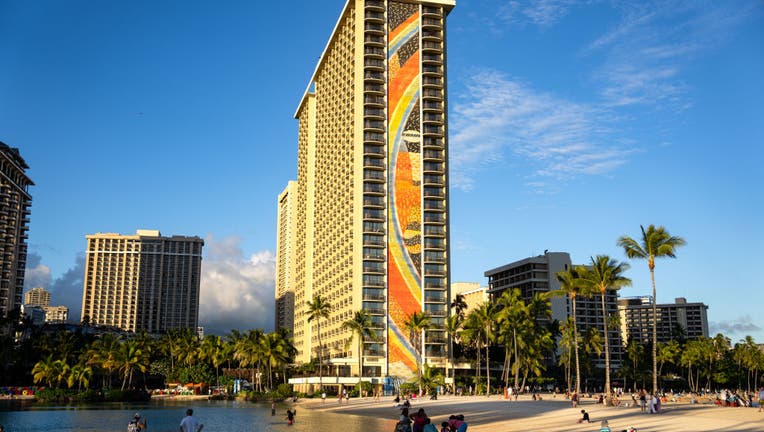Hawaii raises hotel and cruise taxes to fund climate response: What travelers should know

People enjoy the weather at Kahanamoku Beach in view of the iconic Rainbow tower of the Hilton Hawaiian Village Waikiki Beach Resort, on June 30, 2024 in Honolulu, Hawaii.
HONOLULU - Visitors to Hawaii could soon be paying more to help protect its natural beauty—and your next trip might include higher hotel or cruise costs as a result.
Hawaii’s move is also being closely watched by other states considering similar taxes to fight climate-related damage.
Hawaii’s new climate tax targets tourists
Why you should care:
Hawaii Gov. Josh Green on Tuesday signed legislation that increases the state’s tax on short-term accommodations like hotel rooms and vacation rentals, aiming to raise funds for climate resilience and wildfire prevention.
The new law will boost the daily room rate tax by 0.75%, bringing the total state tax to 11%. That doesn’t include additional state and county taxes, which will push the total levy on accommodations close to 19%—among the highest in the U.S.
The law also introduces a new 11% tax on cruise ship bills starting in July 2026. That tax will be prorated based on how many days a ship is docked in Hawaii.
How the money will be used
What they're saying:
Officials say the tax will generate nearly $100 million annually, which will go toward:
- Replenishing eroding beaches like Waikiki
- Clearing invasive grasses that increase wildfire risk
- Installing hurricane clips to help secure rooftops
- Building firebreaks to stop wildfires
- Supporting a new state fire marshal role
Green emphasized that the state must take bold steps after the devastating 2023 Lahaina wildfire that killed 102 people and nearly leveled the historic town.
"This is about protecting Hawaii and creating a model for the rest of the country," Green said.
Big picture view:
This marks the first tax in the U.S. specifically aimed at funding a state’s climate response. Hawaii’s unique vulnerability to climate impacts—rising seas, stronger storms, and wildfire risk—makes it a testing ground for how tourism dollars might help foot the bill.
Hotels and resorts ultimately supported the measure, arguing that protecting Hawaii’s environment is essential for maintaining its status as a top destination.
The Source: This story is based on Associated Press reporting covering Gov. Josh Green’s signing of climate-focused tax legislation aimed at funding wildfire prevention and shoreline protection. This story was reported from Los Angeles.

